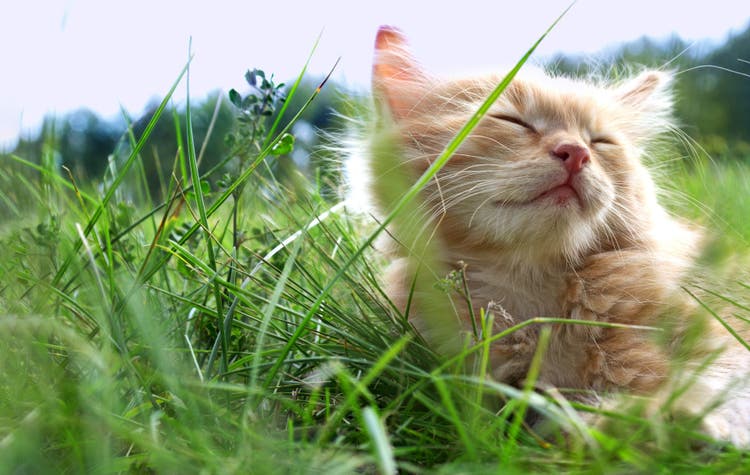
Summer Cat Care
Some people, due to space limitations or personal preference, chose to keep their cat outdoors. Special care needs to be provided for these cats. Unfortunately, outdoor cats have a significantly shorter life span than indoor cats. This is due to increased exposure to contagious diseases, fighting between other outdoor animals and traumatic incidents such as being hit by an automobile.
Housing
It is a good idea to provide a safe and comfortable place for your cat to rest. A small cathouse equipped with easy escape is recommended. The floor of the cathouse can be covered in straw or a blanket to help the cat stay cool in the summer. If straw bedding is used, it will need to be periodically changed. The straw can become moldy creating a variety of skin and respiratory problems.
Grooming
Longhaired outdoor cats will need periodic grooming. These cats are prone to mats and debris caught in their hair. Removing the mats, which may require periodic shaving, will help reduce skin trauma and help the cat maintain proper body temperature. Most shorthaired cats do not require consistent grooming.
Feeding
The outdoor cat is typically quite active. Offering adequate nutrition is essential. Make sure the food offered in a good quality cat food. Offer food at least twice daily. Unfortunately, you may end up feeding more outdoor cats in your neighborhood than just yours. Always provide fresh clean water. Stagnant water pools or puddles are not proper alternatives for water sources.
Health Concerns
A significant health concern for outdoor cats is the potential for traumatic injury. Being hit by a car, attacked by an animal or malicious injury from other people can result in serious injury or even death. It is very difficult to prevent these injuries in the outdoor cat. In addition, fleas, tick and flies are prevalent. Any skin irritation or wound can result in maggot infestation. If your trash can is not properly sealed, ingestion of trash can lead to gastrointestinal upset. Keep all automotive items away from your cat. Many people change antifreeze in the spring and fall and exposure to antifreeze can be deadly. Make sure all toxic or dangerous chemicals are safely stored away. Herbicides, fertilizers and other lawn and garden supplies can pose a health threat. Keep these products safely away from your cat.
Veterinary Care
Annual physical exams are very important in the outdoor cat. Prompt diagnosis and treatment of illness is important. Make sure your outdoor cat is adequately protected from disease by vaccination. Have your cat checked for intestinal parasites and properly dewormed. Discuss flea and tick prevention alternatives with your veterinarian. Heartworm prevention is also very important in the outdoor cat. By being outdoors, his exposure to mosquitoes is great and the possibility of contracting heartworms is increased.